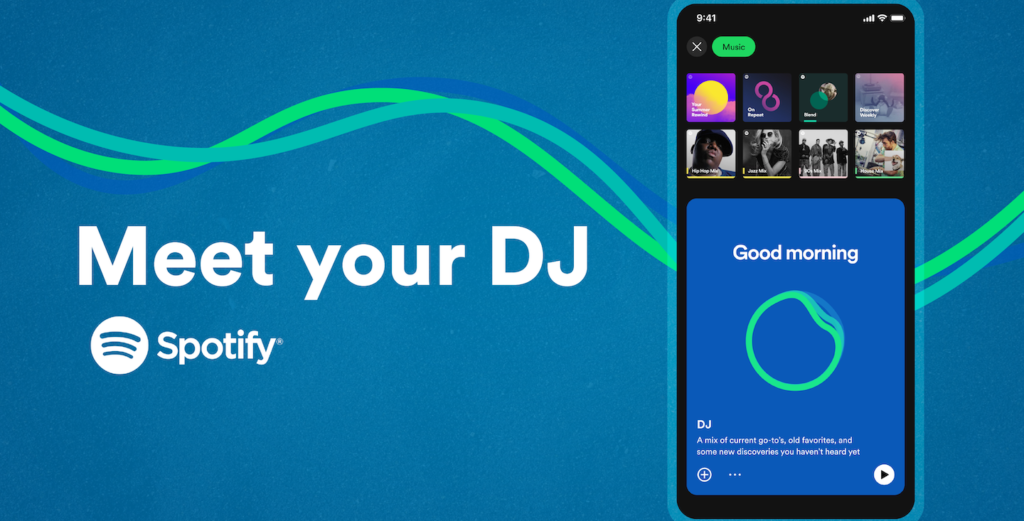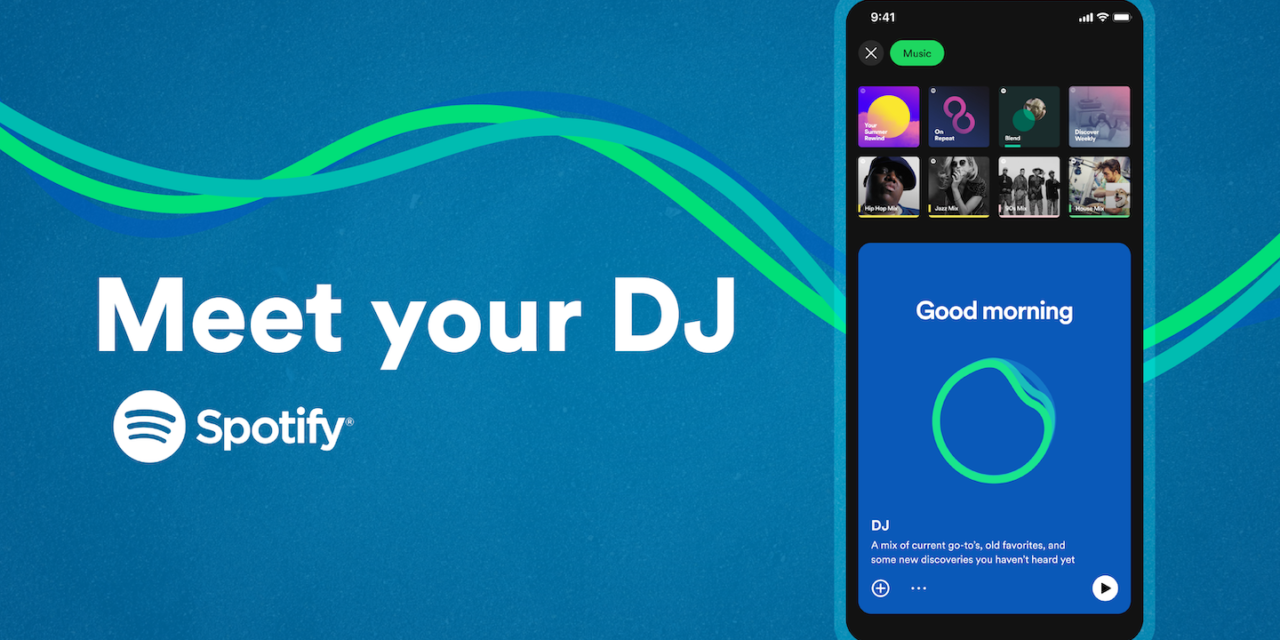Despite Spotify’s established status as the world’s most popular music-streaming service, the company still proves itself as an innovative brand, keeping its product relevant among the sea of competitors. Spotify announced on Feb. 22 that they were rolling out a new feature: an AI DJ. Only a small sector of Spotify users have access thus far, as the DJ was only rolled out to Spotify Premium users in the U.S. and Canada. While this feature is only in the beta stages of production, Spotify has promised a highly systemized program of music for listeners. The AI DJ creates a queue based on stored listener history, which was already a feature of Spotify’s service, but the voiceover between tracks, which provides information to listeners about artists and their songs, is an added experience. Spotify said its team of experts will program the DJ with fun facts about the cultural impact of the recommended music and how it might redefine the music scene.

Courtesy of Spotify
To create the service, Spotify needed to find the appropriate technology for their vision. They ultimately selected Sonantic, a company that specializes in AI voice technology. After Spotify acquired the company last summer, Sonantic co-founders Zeena Qureshi and John Flynn released a written statement about their intended contributions to the streaming platform.
“We believe in the power voice has and its ability to foster a deeper connection with listeners around the world,” they said.
Whether or not this deeper connection has been achieved through the integration of an AI DJ is yet to be determined, but Spotify claims their DJ has a “stunningly realistic voice.” Spotify modeled the voice for the service off of Xavier “X” Jernigan, Spotify’s head of cultural partnerships and one of the hosts on Spotify’s morning show, “The Get Up.” If listeners end up wanting a different voice, they will likely get their wish, since Spotify implied in their announcement that they will hire more people to model voices if the service garners enough interest.
Despite Spotify’s promise of continued innovation and personalization for its users, criticisms have already accumulated. WIRED Magazine writer Boone Ashworth commended the service for its realistic voice, but noted that “X” occasionally hiccuped on the names of songs and artists. Aside from that, Ashworth’s major complaint was about how the DJ exposed Spotify’s potentially-invasive data collection. This complaint may have some validity, since the DJ can recall a user’s listening habits from years ago and will express to a listener that it is suggesting these songs based on specific listening history.
Furthermore, the AI can predict what emotions the listener is feeling and suggest music categorized by identified mood patterns in a listener’s history. In an advertisement for the service, the AI DJ tells a listener, Max, that he listened to a lot of sad music in 2018. As soon as music from this time plays, Max looks saddened and picks up a photograph of himself and another person. Yet, Max can change the tone of his music queue by tapping a button, prompting the DJ to say, “Let’s get you out of your feels.”
Since the AI DJ explicitly reveals how the algorithm processes a listener’s activity, it is not unexpected that Ashworth reported that his experience with the AJ DJ was “eerily lonely.” For some listeners, being aware of how their emotions and lives are being dissected by an unfeeling technology may invoke feelings of anxiety. Accordingly, Ashworth will likely not be the only listener to feel disconcerted by the AI DJ’s role in their listening experience.
On the other hand, Gizmodo science reporter Kevin Hurler expressed concerns less about the possible psychological impacts of the AI DJ and more so about the unnecessary aspect of it. Spotify boasted that the DJ would create highly algorithmic playlists, but this concept is certainly not as premier as it is advertised to be. Since Spotify has been using advanced machine learning models for its playlists before even 2021, it is not surprising that Hurler dismisses the concept of the AI DJ as “a humanization of Spotify’s already existing AI-generated playlists.”
Despite some of the initial backlash with the drop of the AI DJ, it is difficult to predict the scope of the reactions to this added service. Only time will tell whether listeners perceive the AI DJ as a personalized benefit or not.






